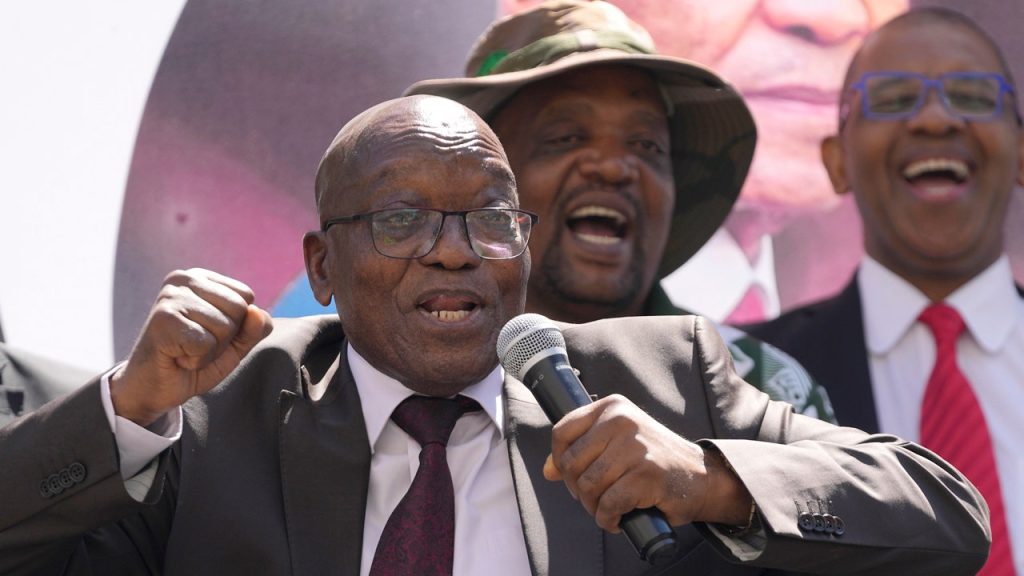Jacob Zuma, the former president of South Africa, has emerged as a major player in the upcoming national elections. Zuma, who was forced to resign in 2018 amidst corruption allegations, has formed a new political party called UMkhonto WeSizwe, named after the ANC’s military wing. Zuma is seeking revenge against former allies in the ruling African National Congress (ANC) and is campaigning aggressively against the party that was once at the heart of his political career.
Zuma’s return to the political arena is significant as it poses a challenge to the ANC, which has held power since the end of white minority rule in 1994. Polls suggest that the ANC may receive less than 50% of votes in the upcoming elections, which would be a first in the country’s history. Zuma’s new party threatens to draw support away from the ANC and could potentially play a significant role in forming coalitions if the ANC is weakened.
Zuma’s political career has been turbulent, marked by legal challenges and allegations of corruption. Despite these challenges, Zuma was elected president in 2009 but was forced to resign in 2018 after a judicial commission of inquiry uncovered evidence of widespread corruption during his presidency. Zuma’s conviction and subsequent sentencing to 15 months in jail for refusing to testify further strained his relationship with the ANC and current President Cyril Ramaphosa.
Zuma’s return to politics has been met with mixed reactions in South Africa. While some of his supporters view him as a champion against injustice and corruption, others see him as a divisive figure who has damaged the country’s democratic institutions. Zuma continues to crisscross the country, delivering passionate speeches, and his new party is expected to be one of the country’s biggest opposition parties.
The upcoming elections in South Africa are shaping up to be one of the most closely watched in the country’s history. The ANC is facing pressure from both traditional opposition parties and from within its own ranks due to the emergence of Zuma’s new party. As the country prepares to go to the polls, the role of Jacob Zuma and his new political party in shaping the future of South African politics cannot be underestimated.
Despite his past legal troubles and controversies, Zuma remains a prominent figure in South African politics. He continues to command a loyal following, particularly in KwaZulu-Natal province, where his Zulu ethnic group forms a majority. Zuma’s political comeback is a reminder of the complexities and challenges facing South Africa as it navigates the legacy of apartheid and strives to build a more inclusive and democratic society.


